WASHINGTON, Sept 16: The gap between Israel and the United States on Iran widened on Sunday as Benjamin Netanyahu warned that Tehran was 90 per cent toward a nuclear weapon and insisted on a “red line” from Washington.
The Israeli leader, speaking on two US political talk shows, pressed the need for a categorical bar on Iran, saying such a safeguard had averted nuclear calamity with Russia during the Cold War and could do so again.
The United States says all options against Iran, including military action, remain on the table, though top officials have rejected the need for so-called “red lines,” implying that they amount to political grandstanding.
To CNN and in a second interview with NBC's “Meet the Press” — both aired Sunday — Netanyahu maintained that telling Iran there is a definite line it must step back from would serve as a pre-emptive and effective deterrent.
“If they know there's a point, a stage in their enrichment or other nuclear activities that they cannot cross because they'll face consequences, I think they will actually not cross it,” he told CNN's “State of the Union,” programme.
“It's important to put a red line before them and that's something we should discuss with the United States.”
The Israeli prime minister said Iran was moving rapidly to complete enrichment of the uranium needed to produce a nuclear bomb. “In six months or so they'll be 90 per cent of the way there,” he said.
But his call for a change of tack and stiffer warnings from Washington was rejected by Susan Rice, the US ambassador to the United Nations.
Although Rice maintained there was “no daylight” between US and Israeli policy, her comments on the timescale of Tehran's nuclear ambitions jarred with Netanyahu's judgment, and contradicted her claim of seamless unity.
“We think that there's still considerable time for this pressure to work,” Rice said, refusing to acknowledge the red lines argument and insisting that sanctions were working.
“Their economy is beginning to buckle. Their oil production is down 40 per cent. Their currency has plummeted 40 per cent in the last year.”
But she added: “This is not an infinite window, and we've made very clear that the president's bottom line is Iran will not have a nuclear weapon.”
The United States maintains that it will not allow Iran to develop an atomic bomb, but it favours and has pursued a policy of tough sanctions and diplomatic arm twisting, rejecting the need for other measures.
Israel has consistently said a nuclear-armed Iran would pose an existential threat to the Jewish state and has wielded the threat of military action.
Major western powers agree with Israel that Tehran is using its civilian nuclear programme as a cover for building atomic weapons capability, a charge the Iranians have repeatedly denied.With relations between Netanyahu and President Barack Obama already viewed as frosty, US Defence Secretary Leon Panetta on Friday highlighted the policy split further when he rejected Israel's demand for red lines.
“The fact is, look, presidents of the United States, prime ministers of Israel or any other country — leaders of these countries don't have, you know, a bunch of little red lines that determine their decisions,” Panetta said.
“What they have are facts that are presented to them about what a country is up to, and then they weigh what kind of action is needed to be taken in order to deal with that situation,” he told Foreign Policy magazine.
“I mean, that's the real world. Red lines are kind of political arguments that are used to try to put people in a corner.”
The White House was last week forced to deny a report that Obama had refused to meet Netanyahu in New York later this month, and said the two spoke by telephone on Tuesday and were united in their stance toward Tehran.
With Republican presidential nominee Mitt Romney accusing Obama of being a poor friend to Israel, Netanyahu has denied that he is guilty of political meddling ahead of US elections on November 6.
Rice said in a separate interview with “Fox News Sunday” that US-Israeli relations were “stronger than ever,” and reiterated that the only reason Netanyahu and Obama would not meet at the upcoming UN General Assembly in New York was because their schedules did not match.—AFP


















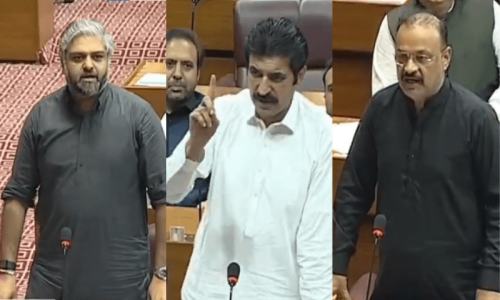







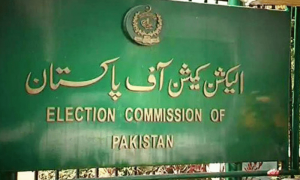
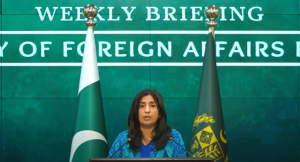




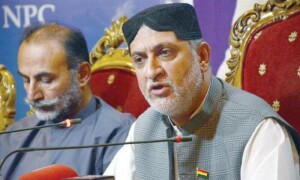

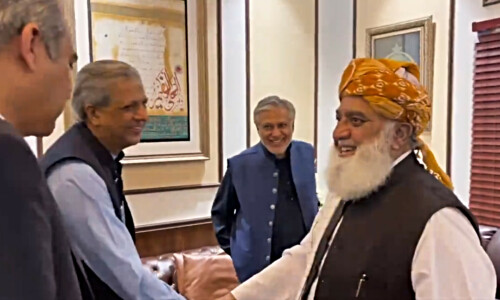












Dear visitor, the comments section is undergoing an overhaul and will return soon.